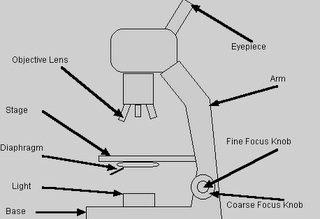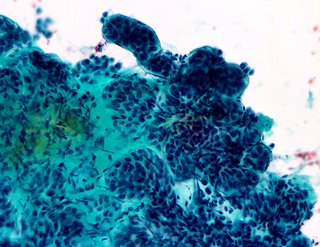Cytotechnologists are specially trained individuals who are responsible for detecting small changes or abnormalities in cells. Their work is critical in the early detection and diagnosis of cancers and other diseases. They examine samples under a microscope, studying the slides for minute abnormalities in a cell's shape, color, or size. These findings are usually the first warning signs of cancer and are used to indicate whether it is benign or malignant. Cytotechnologists usually work under the direction of a clinical pathologist who is responsible for any final diagnosis. These cellular samples may be obtained from various bodily structures, such as the lungs, breast, liver, thyroid, the oral cavity, the female reproductive tract, or any body cavity that sheds cells. Examination of Pap smears continues to be a major role for cytotechnologists. Cytotechnologists are also responsible for detecting abnormal hormone conditions and other pathological disease processes, which can have an adverse affect on a patient's health. Anyone interested in this highly technical field should be a responsible decision-maker and an efficient problem solver.
Work Environment:
Cytotechnologists usually work in hospitals, clinics, and private laboratories. Other places of employment are research laboratories, educational institutions, and government facilities.
Human Papillomavirus Effect - Low Grade, Histology

High Grade Lesion/Cervical Cancer

Breast, Lobular Carcinoma (in situ)










No comments:
Post a Comment